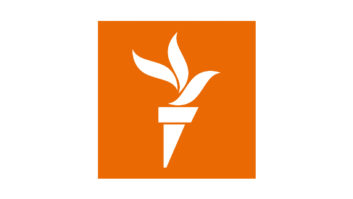 When radio made its debut more than 110 years ago, little did we know the long-lasting impact that it would have on the ability to inform and communicate with the world.
When radio made its debut more than 110 years ago, little did we know the long-lasting impact that it would have on the ability to inform and communicate with the world.
That’s the essence of a new podcast by ITU Podcasts, which looks at the way that radio continues to innovate, connect and evolve.
To celebrate World Radio Day on February 13, ITU and the world peace organization UNESCO participated in the production of “The Resilience of Radio,” a podcast celebrating “the unique power of radio to touch lives and bring people together even amid crisis, disaster and emergencies,” said Mario Maniewicz, director of ITU’s radio communication bureau. Learn more at the website.
[Read: WRHU to Go Worldwide on February 12–14]
The International Telecommunication Union (ITU) is the United Nations’ specialized agency for information and communication technologies. ITU Podcasts designs podcasts that help listeners navigate the changing world of information and communication technology.
Ironically enough, the pandemic has illustrated how valuable radio can be. Even though prognosticators have predicted the demise of radio for years, the medium continues to thrive, said Maximillian Jacobson-Gonzalez, the podcast presenter. Radio is a $40 billion dollar industry with more than 90% of North Americans listening every week.
“How can technology help us face the dramatic shifts in how we live our lives? Next to other technological advances, radio could seem to be an antiquated medium,” said Jacobson-Gonzalez. But what we’ve seen over the past years, he said — and especially during the pandemic — is that radio is proving to have one of the most resilient backbones of all.
“Radio used to be a transistor on our kitchen table,” Maniewicz said. “Nowadays it is a standard accessory in our cars and smartphones.” And because of that, even as the pandemic raged around the world, radio showed it had the ability to bring people together amid crisis, disaster and emergencies.
The “The Resilience of Radio” podcast recounts the results from a recent study conducted by the Media Psychology Lab at the Pompeu Fabra University in Barcelona, Spain. The study looked at the listening habits, consumption, credibility and physiological impact of radio in Spain during coronavirus pandemic.
“Listeners had a very positive impression in the role that radio is playing during the crisis,” said Emma Rodero, senior lecturer and director of the Media Psychology Lab. In addition to a jump in the number of hours a day that people listened to radio, the physiological impact of radio became one of the survey’s most important findings, she said.
“Many people are reporting feeling bad and feeling fear and anguish,” she said. And in these cases, radio ended up playing a significant role in addressing that fear and anxiety, she said.
“When you’re feeling these intense and negative emotions, radio was there,” Rodero said. “[Listeners] reported that it ‘relieved my loneliness and made me feel happy and reduced my anxiety.’ You feel you are not alone.” This may be why radio was noted as being the most intimate and most personal medium of all those technologies surveyed.
“You emotionally connect to these voices on the radio,” Rodero said. “This is the power of radio in keeping people connected and informed.”
The podcast also touches on the effectiveness of campaigns run through radio, the community that comes with ham radio and the efficacy of radio when disseminating key health news across an entire continent like Africa, where it’s estimated that between 80% and 90% of households have access to a radio.
“The Resilience of Radio” podcast is the eighth episode of the ITU’s Technology for Good podcast series, which is focusing on how technology is helping to shape the world around us. The podcast series can be found on Soundcloud, Spotify and Apple Podcasts among others.






